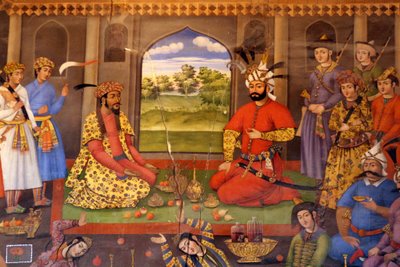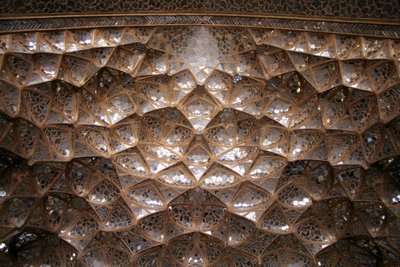 This is a partial view showing a detail of the painting in my previous post. Here you see Tahmasb I, the Safavid king of Iran in the 16th and Homayun, the Mogul king of India which came to Iran as a refugee.
This is a partial view showing a detail of the painting in my previous post. Here you see Tahmasb I, the Safavid king of Iran in the 16th and Homayun, the Mogul king of India which came to Iran as a refugee.The setting of the ceremony is a palace (which is now destroyed) in North-West of Iran in a city called after a Jewish prophet Qeidar-r-Nabi (Qeidar the Prophet).
The Iranian and Indian kingdoms were in good relationship at that time, so the Safavid king helped Homayun to gain back his kingdom.
The dancers and the musical instruments are all Iranian.










